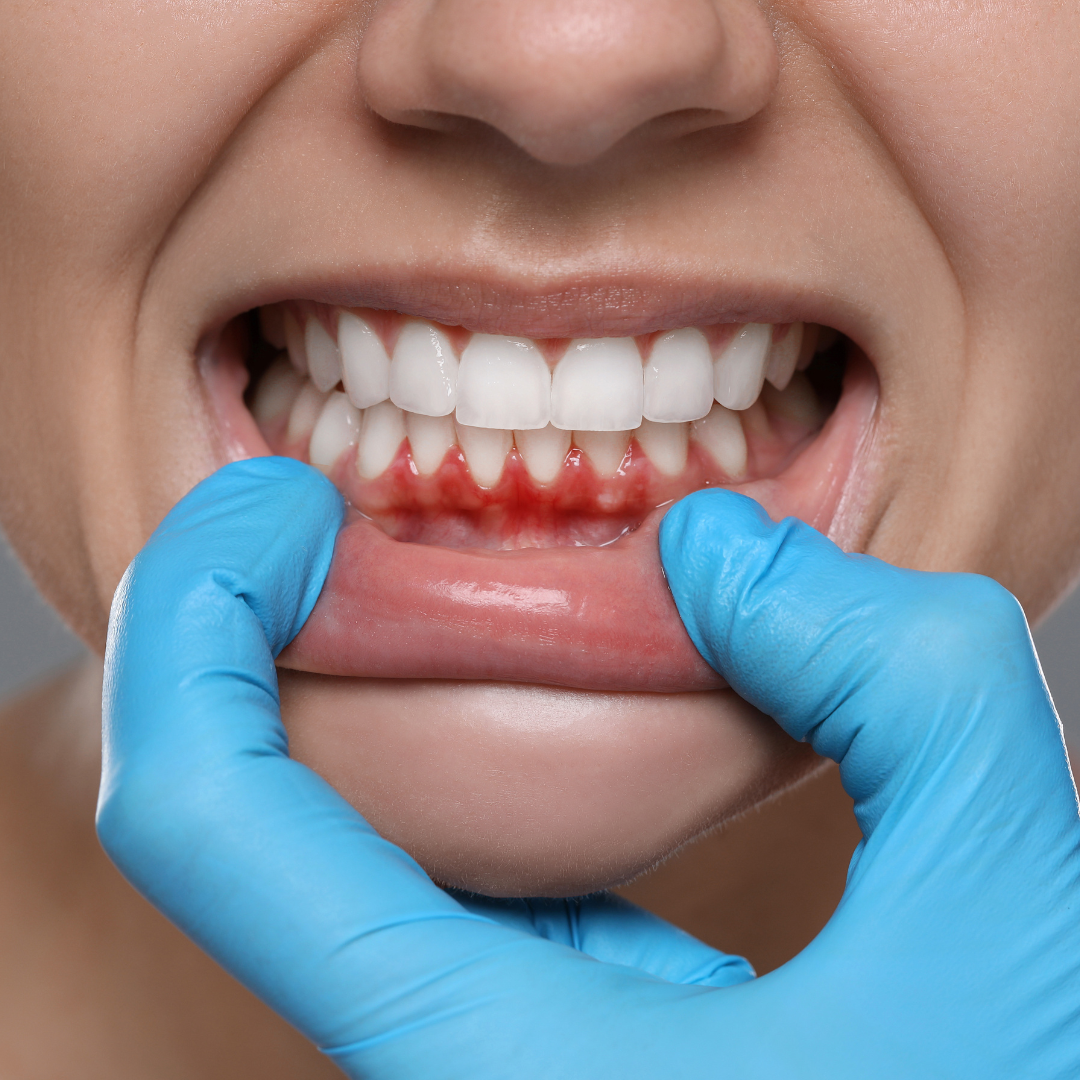Everything You Need to Know About Bleeding Gums
Bleeding gums are one of the most common dental issues people experience. It might happen when you brush, floss, or even eat, and it’s often a sign that your gums need extra care. Here’s a simple guide to understanding bleeding gums and how we can help treat them.
Why Do Gums Bleed?
Bleeding gums can happen for several reasons, including:
- • Plaque Build-Up : Not cleaning your teeth properly allows plaque (a sticky film of bacteria) to build up, irritating the gums.
- • Gingivitis : The early stage of gum disease, where gums become red, swollen, and prone to bleeding.
- • Aggressive Brushing : Using too much force or a hard-bristled toothbrush can damage gums.
- • Vitamin Deficiency : Lack of vitamin C or K can make gums more likely to bleed.
- • Hormonal Changes : Pregnancy, menstruation, or menopause can make gums more sensitive.
- • Medical Conditions : Conditions like diabetes, blood disorders, or infections can affect gum health.
What Can Bleeding Gums Lead To?
Ignoring bleeding gums can lead to :
- • Gum Disease Progression : Untreated gingivitis can turn into periodontitis, a more serious gum disease.
- • Bad Breath : Bacteria in plaque can cause persistent bad breath.
- • Tooth Loss : Advanced gum disease can damage the bone supporting your teeth, leading to tooth loss.
How We Treat Bleeding Gums
Professional Dental Cleaning
- • Scaling : Removes plaque and tartar build-up around your teeth and gums.
- • Polishing : Smoothens your teeth to prevent further plaque accumulation.
Gingivitis Reversal
- • Early gum disease : Early gum disease is reversible with proper cleaning and oral care guidance.
Deep Cleaning for Advanced Cases
- • Root Planing : Cleans below the gumline and smoothens tooth roots to help gums reattach to teeth.
Antibacterial Treatments
- • Specialized rinses or gels to kill harmful bacteria and promote healing
Nutritional Advice
- • Guidance on diet and supplements, especially if vitamin deficiencies are contributing.
Customized Home Care Routine
• Recommendations for the best toothbrush, toothpaste, and floss for your gums.
What Can You Do at Home?
- • Brush Properly : Use a soft-bristled toothbrush and gentle circular motions.
- • Floss Daily : Remove food particles and plaque from between teeth.
- • Rinse with Salt Water : A natural way to reduce inflammation and kill bacteria.
- • Eat a Balanced Diet : Include vitamin-rich foods like fruits and vegetables.
- • Visit Your Dentist : Regular check-ups can prevent gum problems before they start.
Bleeding gums are a sign that your mouth needs attention. The good news is that with the right care and treatment, they can heal and become healthy again. Don’t wait — let us help you restore your gum health and keep your smile strong!

